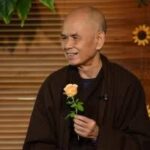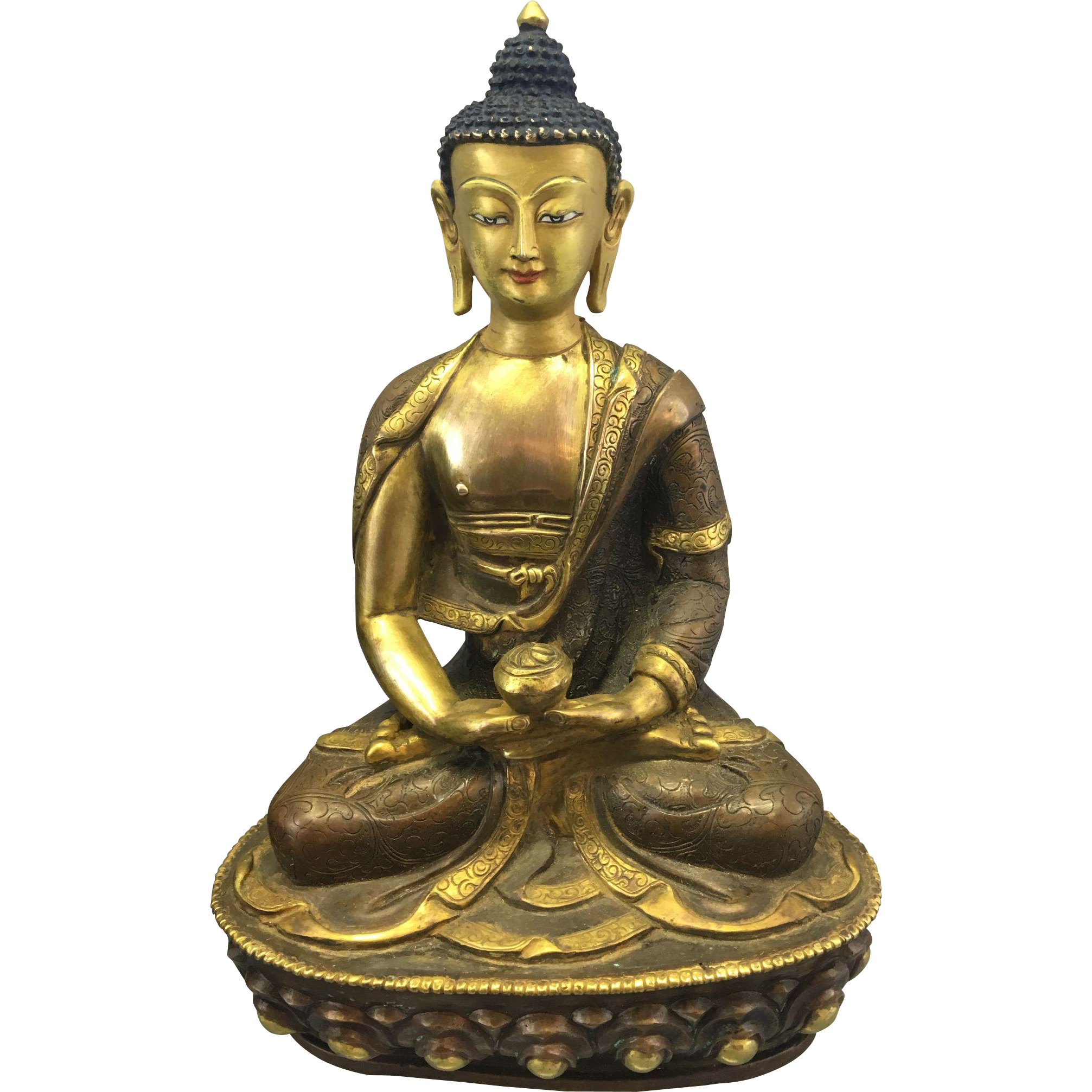Welcome to our twenty seventh online suggested practise for the week. We are now broadcasting a live teaching each Monday evening. If you would like to participate please contact us using the contact form on the homepage.
1.0) If you feel so inclined, begin by reciting the usual prayers (please follow below links for text). Alternatively, try to think or articulate a wish for all beings to achieve liberation from suffering, etc .
Four Thoughts: contemplating each in turn – http://northantsbuddhists.com/the-four-thoughts/
Refuge Prayer: twice in Tibetan, once in English – http://northantsbuddhists.com/the-refuge-prayer/

2.0) Thay’s Dharma Talk, True Presence – The Four Mantras. A guide to helping others and self who are suffering by being present in the moment. – Presented by Joyce Stirling.

Thick Nhat Hanh’s the Four Mantras
1. Darling I am here for you.
2. Darling I know you are there for me.
3. Darling I know you are suffering and I am here for you.
4. Darling I am suffering, please help me.
When you love someone you have to be truly present for them. To demonstrate true love we have to make ourselves available.
The greatest gift we can make to others is our TRUE presence. “I am here for you” is a mantra to be uttered in perfect concentration. When you are concentrated –mind and body- you produce your true presence and anything you say is a mantra.
1, “Darling I am here for you.” If you are truly present, you will become real, the other person will become real and life is real in that moment.
2. “Darling I know you are there and I am very happy.” First you practice breathing in and out deeply to recover yourself, and then you sit close to the one you love and in that state of deep concentration, pronounce this second mantra. You are happy and the person you love is happy at the same time. These mantras can be practised in our daily life. To be a true lover, you have to practise mindfulness of breathing, sitting and walking in order to produce your true presence.
3. “Darling I know you suffer and that is why I am here for you.” When you are mindful you notice when the one you love is suffering. If we suffer and the one we love is not aware of our suffering, we will suffer even more. Just practice deep breathing, sit next to the one you love and say, “Darling I know you are suffering and that is why I am here for you.” Your presence alone will relieve their suffering. No matter how old or young you can do it.
4. The fourth mantra is the most difficult. It is practiced when you yourself suffer and you believe that the person you love is the one who has caused you to suffer. The mantra is “Darling I suffer, please help,” Only five words but many people cannot say it because of the pride in their heart. If anyone else had said or done that to you, you would not suffer so much, but because it was the person you love, you are deeply hurt. But if you really love them, when you suffer like that you have to ask for their help. You have to overcome your pride.
There is a well known story in Vietnam about a husband who had to go off to war leaving his pregnant wife behind. Three years later, when he returned from the army his wife met him at the village gate bringing with her their three year old son. When they saw each other they cried tears of joy. They were so thankful to their ancestors for protecting them that the young man asked his wife to go to the market to buy flowers, fruit and other offerings to place on the ancestor’s altar.
While she was shopping the man asked his son to call him daddy. The little boy refused saying “you are not my daddy. My daddy used to come every night, and my mummy would talk to him and cry. When mother sat down daddy would also sit down. When mother lay down, daddy also lay down.” Hearing these words the young father’s heart turned to stone.
When his wife came home he couldn’t look at her. The young man made offerings to his ancestors then rolled up the bowing mat refusing to allow his wife to pray. He believed his wife was not worthy to present herself in pray.
The wife was deeply hurt, she could not understand why he was acting like that. He spent days in the liquor store getting drunk. Finally she could no longer bear it and she jumped into the river and drowned.
That evening after the funeral, when the father lit the kerosene lamp the little boy shouted, “there is my daddy” pointing to the shadow on the wall. One night the child asked his mother who and where was his daddy. She pointed to the shadow on the wall and said “that is your daddy.”
Suddenly the young father understood but it was too late. If he had gone to his wife and said “I suffer so much because our son said a man visited you every evening, who was that man? She would have had the opportunity to explain. But, he didn’t because of his pride.
The mother believed the same. She was deeply hurt because of his behaviour but she did not ask for his help. She should have practised the 4th mantra, “Darling I suffer so much. Please help me.” I do not understand, have I done something wrong? If she had done, he could have told her what their son had said. But, she did not because of her pride.
In true love there is no place for pride. When you are hurt by a person you love, when you suffer and believe that your suffering has been caused by a loved one, remember this story. Do not let pride get in the way. Practise the 4th Mantra, “Darling I suffer, please help me.” You will be able to sort things out, reconcile and dissolve the wrong perceptions.
—–0——
2.1) Awakening the Buddha within by Lama Surya Das – Eight Steps to enlightenment, Tibetan Wisdom for the modern world. = Presented by Geoff Warren

Put the Responsibility Where it Belongs.
This statement reflects an essential bottom-line spiritual position. By clinging to the ego & a self centred notion of I, me, & mine, each of us sets the stage for our own difficulties. We are all interconnected and interdependent. Thinking about others represents enlightened self-interest; wrong-headed self-cherishing is the root of all our problems. Nothing else can be blamed. When you are selfish and self involved, you too easily bring grief on yourself. You are in charge of your own karma and your own liberation, just as I am in charge of mine.
‘Reflect on the Kindness of Everyone you meet’.
We give thanks to the many beings who helped bring us this food – Zen mealtime prayer.
Everyone has been kind and helpful to you in some past life, because everyone you meet has been kind and helpful to you in some past life, because everyone you meet has been a loving relative; they should be treated accordingly. This is a very important teaching in Tibetan Buddhism. It is also a commonsense approach to life; judge no one, be kind to all, and say thank you.
‘All Activities should be done with one intention’.
Let precious boddhicitta be your organising principle. Help. And do not harm others. Cultivate this remembrances in everything you do; be gentle, be kind, be thoughtful, be caring, be compassionate, be loving, be fair, be generous to everyone, including yourself.
Meditation on 8 verses of Lojong
May I always cherish all beings
With the resolve to accomplish for them
The highest good that is more precious
Than any wish-fulfilling jewel.
Whenever I am in the company of others,
May I regard myself as inferior to all
And from the depths of my heart
Cherish others as supreme.
In all my actions may I watch my mind,
And as soon as disturbing emotions arise,
May I forcefully stop them at once,
Since they will hurt both me and others.
When I see ill-natured people,
Overwhelmed by wrong deeds and pain,
May I cherish them as something rare,
As though I had found a treasure-trove.
When someone out of envy does me wrong
By insulting me and the like,
May I accept defeat
And offer the victory to them.
Even if someone whom I have helped
And in whom I have placed my hopes
Does great wrong by harming me,
May I see them as an excellent spiritual friend.
In brief, directly or indirectly,
May I give all help and joy to my mothers,
And may I take all their harm and pain Secretly upon myself.
May none of this ever be sullied
By thoughts of the eight worldly concerns.
May I see all things as illusions
And, without attachment, gain freedom from bondage.
—0—
